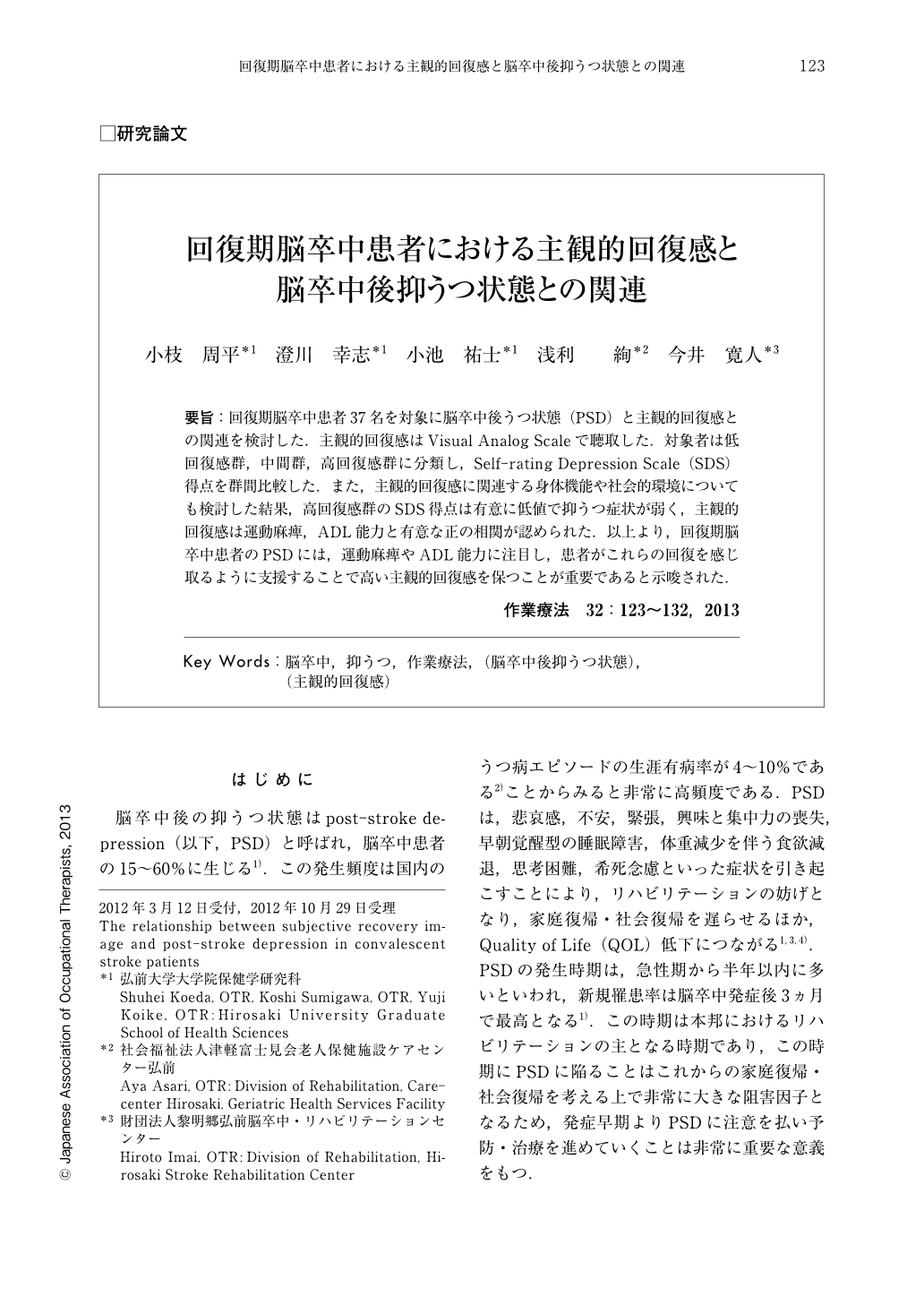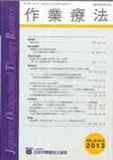Japanese
English
- 販売していません
- Abstract 文献概要
- 1ページ目 Look Inside
- 参考文献 Reference
- サイト内被引用 Cited by
要旨:回復期脳卒中患者37名を対象に脳卒中後うつ状態(PSD)と主観的回復感との関連を検討した.主観的回復感はVisual Analog Scaleで聴取した.対象者は低回復感群,中間群,高回復感群に分類し,Self-rating Depression Scale(SDS)得点を群間比較した.また,主観的回復感に関連する身体機能や社会的環境についても検討した結果,高回復感群のSDS得点は有意に低値で抑うつ症状が弱く,主観的回復感は運動麻痺,ADL能力と有意な正の相関が認められた.以上より,回復期脳卒中患者のPSDには,運動麻痺やADL能力に注目し,患者がこれらの回復を感じ取るように支援することで高い主観的回復感を保つことが重要であると示唆された.
Post-Stroke Depression (PSD) is commonplace, and inhibits rehabilitation efficiency. The purpose of this study was to reveal the effects of subjective recovery image of stroke on PSD in convalescent stroke patients. Additionally we revealed the relationship between subjective recovery image and associated factors. Subjective recovery image was measured by Visual Analog Scale (VAS). Subjects of the current study were 16 males and 21 females. The subjects were divided into three groups at the tertile of subjective recovery image, and the Self-rating Depression Scale (SDS) values were compared among the groups. We examined the relationships among mobility, disability, social disorder and subjective recovery image. Our study demonstrated that patients with a high subjective recovery image have reduced PSD, and that subjective recovery image was related to motor paralysis and decline of Activities of Daily Living (ADL). Therefore, our results suggest that occupational therapists should more pay attention to patients' motor paralysis and a decline of ADL. Furthermore, occupational therapists have to encourage patients to experience their own recovery in order to decrease the incidence of PSD.

Copyright © 2013, Japanese Association of Occupational Therapists. All rights reserved.


